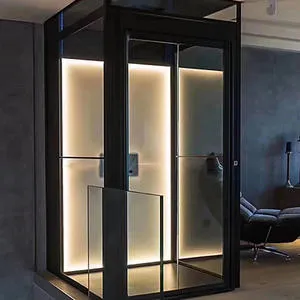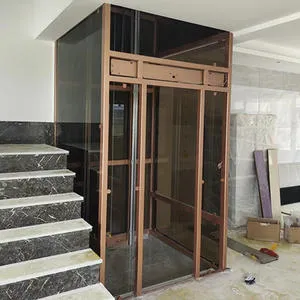 English
English Español
Español Português
Português русский
русский français
français 日本語
日本語 Deutsch
Deutsch Tiếng Việt
Tiếng Việt Italiano
Italiano Nederlands
Nederlands ไทย
ไทย Polski
Polski 한국어
한국어 Svenska
Svenska magyar
magyar Malay
Malay বাংলা
বাংলা Dansk
Dansk हिन्दी
हिन्दी Pilipino
Pilipino Türk
Türk Gaeilge
Gaeilge عربى
عربى Indonesia
Indonesia norsk
norsk čeština
čeština Ελληνικά
Ελληνικά Українська
Українська Javanese
Javanese فارسی
فارسی नेपाली
नेपाली Burmese
Burmese ລາວ
ລາວ Latine
Latine Қазақ
Қазақ Euskal
Euskal Македонски
Македонски Lietuvos
Lietuvos Eesti Keel
Eesti Keel Română
Română Српски
Српски Afrikaans
Afrikaans Bosanski
Bosanski Кыргыз тили
Кыргыз тили Maori
Maori Монгол хэл
Монгол хэл IsiXhosa
IsiXhosa Точик
Точик O'zbek
O'zbek Lëtzebuergesch
Lëtzebuergesch
Elevating Accessibility: The Cost of Installing a Home Elevator
2023/11/22
As homeowners seek to enhance the functionality and accessibility of their residences, the installation of home elevators has become an increasingly popular trend. This luxurious feature not only adds a touch of sophistication but also serves as a practical solution for mobility challenges. However, before embarking on this home improvement journey, it is crucial to understand the financial implications involved in adding an elevator to your home.

How much to install an elevator in a home?
The cost of installing a home elevator can vary significantly based on several factors, including the type of elevator system, the complexity of the installation, and the level of customization required. On average, homeowners can expect to invest anywhere from $20,000 to $50,000 for a basic home elevator, with high-end models and custom designs potentially exceeding $100,000.
Type of Elevator System:
The choice of elevator system plays a pivotal role in determining the overall cost. The most common types of home elevators include hydraulic, traction, and pneumatic vacuum elevators. Hydraulic elevators are known for their smooth operation and are typically at the lower end of the cost spectrum, starting around $20,000. Traction elevators, which use a counterweight system, are slightly more expensive due to their more complex machinery. Pneumatic vacuum elevators, which use air pressure to move the cab, are the most modern option and can cost upwards of $35,000 due to their cutting-edge technology and minimalistic design.
Installation Complexity:
The complexity of the installation process is another significant cost factor. A retrofit into an existing home often requires more extensive construction work, including creating a hoistway, reinforcing the structure, and possibly rerouting electrical and plumbing systems. These modifications can add to the cost significantly. In contrast, new constructions can integrate elevator plans into the design from the outset, potentially reducing installation complexity and cost.
Customization and Aesthetics:
Customization options such as the choice of materials, lighting, and size of the elevator cab can also impact the total cost. High-end finishes such as hardwood, marble, or custom glass can drive the price higher. Additionally, if the elevator is intended to be a statement piece within the home, architectural modifications to showcase the installation can further increase expenses.
Permitting and Code Compliance:
Homeowners must also consider the costs associated with permitting and ensuring that the elevator installation complies with local building codes and the Americans with Disabilities Act (ADA) requirements. Permitting fees will vary by location, and any required inspections or additional compliance measures can add to the overall cost.
Maintenance and Operating Costs:
Beyond the initial installation, homeowners should factor in the ongoing maintenance and operating costs of a home elevator. Regular servicing is essential for safety and longevity, and emergency repairs can be costly. Additionally, the energy consumption of the elevator system should be considered as part of the home's overall utility expenses.
Financing and Home Value Impact:
For those concerned about the upfront costs, financing options such as home equity loans or lines of credit can spread the expense over time. Moreover, installing a home elevator can increase the property's value, making it a potentially wise investment for those looking to sell in the future. It is estimated that a home elevator can boost a property's market value by as much as 10%, depending on the local real estate market and the quality of the installation.
In conclusion, while the cost of installing a home elevator can be substantial, the benefits of enhanced accessibility, increased home value, and improved quality of life for individuals with mobility issues are undeniable. Homeowners considering this addition should carefully evaluate their needs, budget, and the potential return on investment. With proper planning and expert consultation, a home elevator can be a valuable and rewarding upgrade to any residence.

Before making a final decision, it is advisable to consult with professional elevator installers and contractors who can provide detailed quotes and guidance tailored to your specific home and requirements. By doing so, homeowners can ensure that they make an informed decision that aligns with their financial capabilities and home improvement goals.




